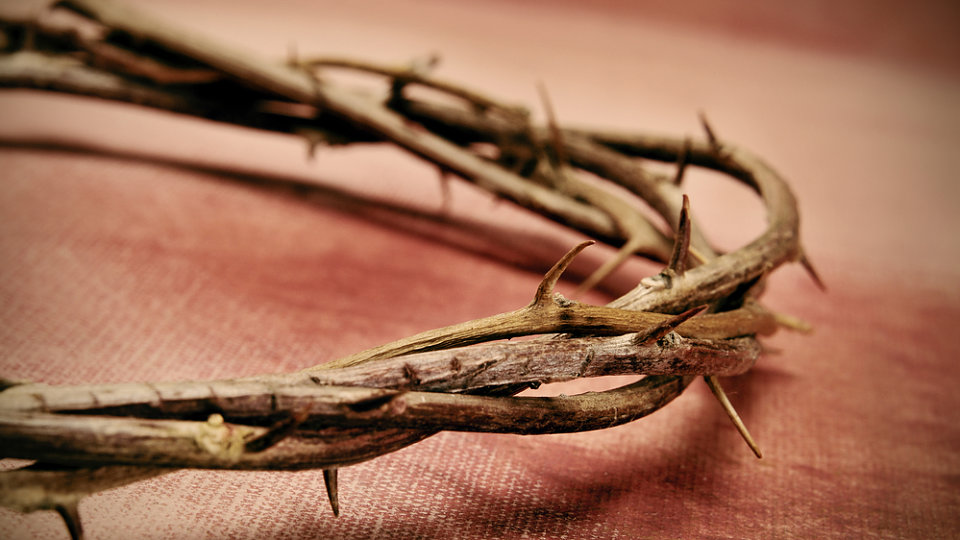The Trials of Jesus
Unlike what is described in Matthew, Mark, and Luke, in John’s Gospel Jesus did not appear before the Sanhedrin, the Jewish ruling council. He appeared briefly before Annas, the former high priest, and again before Caiaphas, the reigning high priest, but very little is said about these trials except that the priests apparently agreed Jesus should be executed for claiming to be the Son of God. Then Jesus was bound over to Pontius Pilate, the Roman governor of Judea.
Pilate’s job was to maintain the peace of Rome, making sure Rome’s power was exerted in the land of Judea. The charge the high priest made against Jesus was insurrection—that he was claiming to be King of the Jews in rebellion against Caesar. Insurrection was a crime punishable by death.
This charge sets up the theme of Jesus’ kingship. In John’s account of Jesus’ trial before Pilate and his crucifixion, the word king or kingdom is used fifteen times.
Pilate went back into the palace. He summoned Jesus and asked, “Are you the king of the Jews?” Jesus answered, “Do you say this on your own or have others spoken to you about me?” Pilate responded, “I’m not a Jew, am I? Your nation and its chief priests handed you over to me. What have you done?” Jesus replied, “My kingdom doesn’t originate from this world. If it did, my guards would fight so that I wouldn’t have been arrested by the Jewish leaders. My kingdom isn’t from here.” “So you are a king?” Pilate said. Jesus answered, “You say that I am a king. I was born and came into the world for this reason: to testify to the truth. Whoever accepts the truth listens to my voice.” (John 18:33-37)
John’s account depicts Jesus as a King whose Kingdom is not like those of this world. It is a Kingdom that transcends geographic boundaries and even time. It is a Kingdom made up of all who believe in him, follow him, and seek to love God and neighbor. It is a Kingdom of truth, light, and life.
When John describes Jesus as King, his hope is to persuade his readers to accept Jesus as their King—for us to accept him as our King. His kingship comes before our earthly political allegiances.
In Jesus’ trial before Pontius Pilate, again and again Pilate said he found no basis for putting Jesus to death. But the crowd, including the religious leaders, demanded Jesus’ crucifixion. Would Pilate do the right thing, or would he do the politically expedient thing? Pilate knew that the right thing was to release Jesus, but he didn’t do it because he was afraid. What would it do to his career? What would it do to his stature?
In this account, Pilate represents all of us, because at some point in our lives we will face this trial and this test. What will we do when given that choice? Is it Christ or career? Christ or status? Christ or money? What is the trial you face?
Of course, in a very real sense this wasn’t Jesus’ trial at all; it was the trial of Pontius Pilate and the religious leaders. Pilate stood in conversation with the King of kings, sensed that this man was more than he seemed, and referred to him repeatedly as a king. Yet because of Pilate’s concern for himself, he sent Christ to die. He may have helped his political career, but he failed the test.



Comments
blog comments powered by Disqus